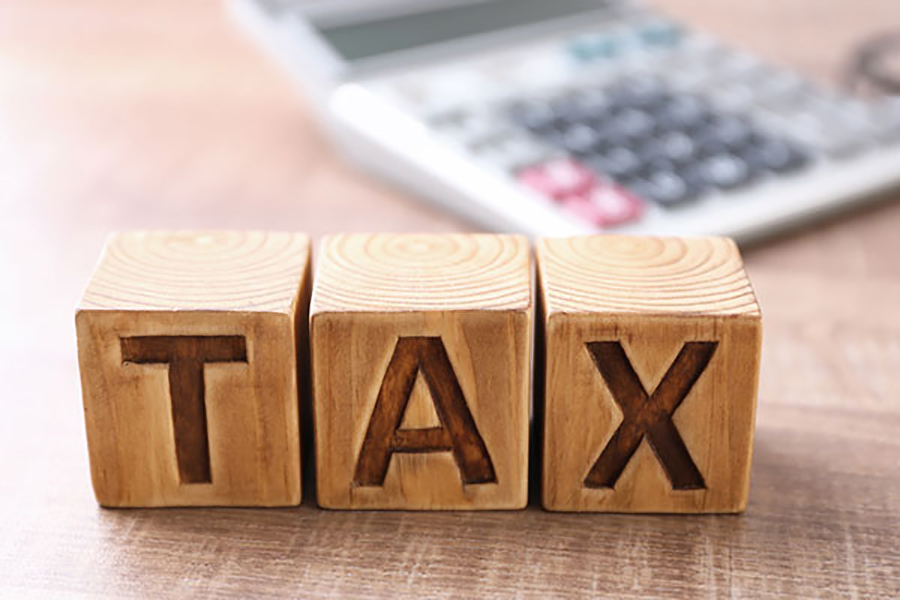Mid-year tax hike thru ordinance: Sudden fiscal measure draws more ire than revenues

Published :
Updated :

A much-debated mid-year fiscal measure hiking taxes earns more ire than additional revenue income to uplift Bangladesh's low tax-to-GDP ratio in the past fiscal year.
Fearing a large shortfall in tax-revenue collection in the bygone year, the interim government imposed increased taxes on a range of 100 items last January but receipts trailed targets in five major sectors, with cigarettes having miserably missed its bumped-up mark by Tk 20.18 billion.
Excise-duty hike on air tickets also lost gear, missing its target by Tk 230 million in the past fiscal year.
A latest assessment document prepared by the value-added tax (VAT) wing of the revenue board on reasons for failing to get to the goals in raising revenues reveals the target failures, including backtracking amid protests.
The National Board of Revenue (NBR) expected an additional Tk 120 billion in revenue on the back of a VAT-and supplementary duty-hike ordinance issued on January 9, 2025.
However, NBR documents do not have the exact data on how much additional revenue could be netted only through those mid-year policy measures.
Following protests, the NBR either reinstated the previous rate or reduced the tax from mobile-phone talk time, internet-service providers, medicine trading, restaurant, clothing, non-AC hotel, sweetmeat trading, motor-garage workshop, ship imports, and restaurant, which lowered its additional revenue-collection estimate to Tk 70.70 billion.
Economists say such deviation in tax laws on mobilising tax-revenue through sudden hikes does not pay off rather creates unpredictability of fiscal policies among local and foreign investors.
The VAT and Supplementary Duty (Amendment) Ordinance 2025 and the Excise and Salt (Amendment) Ordinance 2025, issued on January 9, levied additional taxes on a 100-item basket of products and services.
However, revenue officials have cited the reasons that include the backtracking on tax hike on more than 10 major items after protests and agitation among the businesses.
Bodruzzaman Munshi, Second Secretary of the VAT Policy wing, however, corroborated the tax hike to cushion a negative revenue-collection growth last year due to several disruptions, protests and economic downturn.
Dr Abdur Razzaque, Chairman of Research and Policy Integration for Development (RAPID), says sudden hike in and cutback on taxes is not a systematic approach in policy framing.
"The government must earn 'policy credibility' and its effectiveness rather than creating such uncertainty on tax rates," he adds.
"The NBR must focus on increasing domestic revenue mobilisation and contain inequality," he told the FE writer, lamenting the NBR's "confusing" act on policy changes.
The move aimed at meeting the International Monetary Fund (IMF) condition on increasing the tax-GDP ratio as part of a reform package binding its budget-support lending to Bangladesh.
The new taxes levied through issuing an ordinance in the middle of the financial year sparked off gales of criticisms and protests among the stakeholders.
Officials have said the amount of additional revenue is a peanut where deviation from tax law could not be justified.
Restructuring tobacco taxation through enhancing price and supplementary duty in January has yielded a total of Tk 394.48 billion worth of revenue while the NBR targeted Tk 500 billion.
In FY'24, a total of Tk 374.30 billion in taxes came from the users of tobacco.
Tobacco has stood out as a cash cow for government exchequer over time, although tobacco products earn hate from health campaigners for being injurious, not salubrious anyway, for human health.
Despite the increase in the excise duty on purchase of air tickets, revenue collection dropped by Tk 230 million last year against the amount collected in FY 2023-24.
The NBR collected Tk 11.83 billion in excise duty from domestic airline passengers against Tk 12.06 billion in the corresponding year.
This unexpected mid-year increase in VAT and supplementary duties had stoked fear among the consumers about further spikes in cost of living.
For pharmaceuticals, the local business VAT was increased from 2.4 per cent to 3.0 per cent. Later, it has been brought down. Also, 2.0-percent VAT on LP gas for local businesses has been eliminated in the trimming process.
Prices of and duties on cigarettes have been raised in four tiers. The price of 10 sticks of lower-tier cigarettes has been increased from Tk50 to Tk60, with supplementary duty raised from 60 per cent to 67 per cent.
In the medium tier, prices have risen from Tk70 to Tk80, and supplementary duty from 65.5 per cent to 67 per cent.
The upper tier has seen prices increase from Tk120 to Tk140, with duty also raised to 67 per cent.
Premium-tier cigarette prices have gone up from Tk160 to Tk185, with the same duty increase.
Excise duties for travels on domestic routes have been raised from Tk500 to Tk700.
For flights to Saarc countries, duties have doubled to Tk 1,000.
For Asian countries, duties have been increased from Tk 2,000 to Tk 2,500, and for European destinations, from Tk 3,000 to Tk 4,000.
The NBR has reinstated reduced VAT at 5.0 per cent for restaurant businesses, backtracking on a hike to 15 per cent, mobile talk time and internet to 20 per cent, from upward adjustment to 23 per cent. Also, VAT on internet-service providers or ISPs was kept zero-rated as earlier, in a clean rollback from an increase to 10 per cent.
For non-AC hotel, clothing, sweetmeat trading, VAT rate was brought down to 10 per cent from 15 per cent though it's a slight increase from the previous 7.5-percent rate.
The VAT on motor-garage workshop also got reinstated to 10 per cent that was hiked to 15 per cent through the ordinance.
doulotakter11@gmail.com


 For all latest news, follow The Financial Express Google News channel.
For all latest news, follow The Financial Express Google News channel.